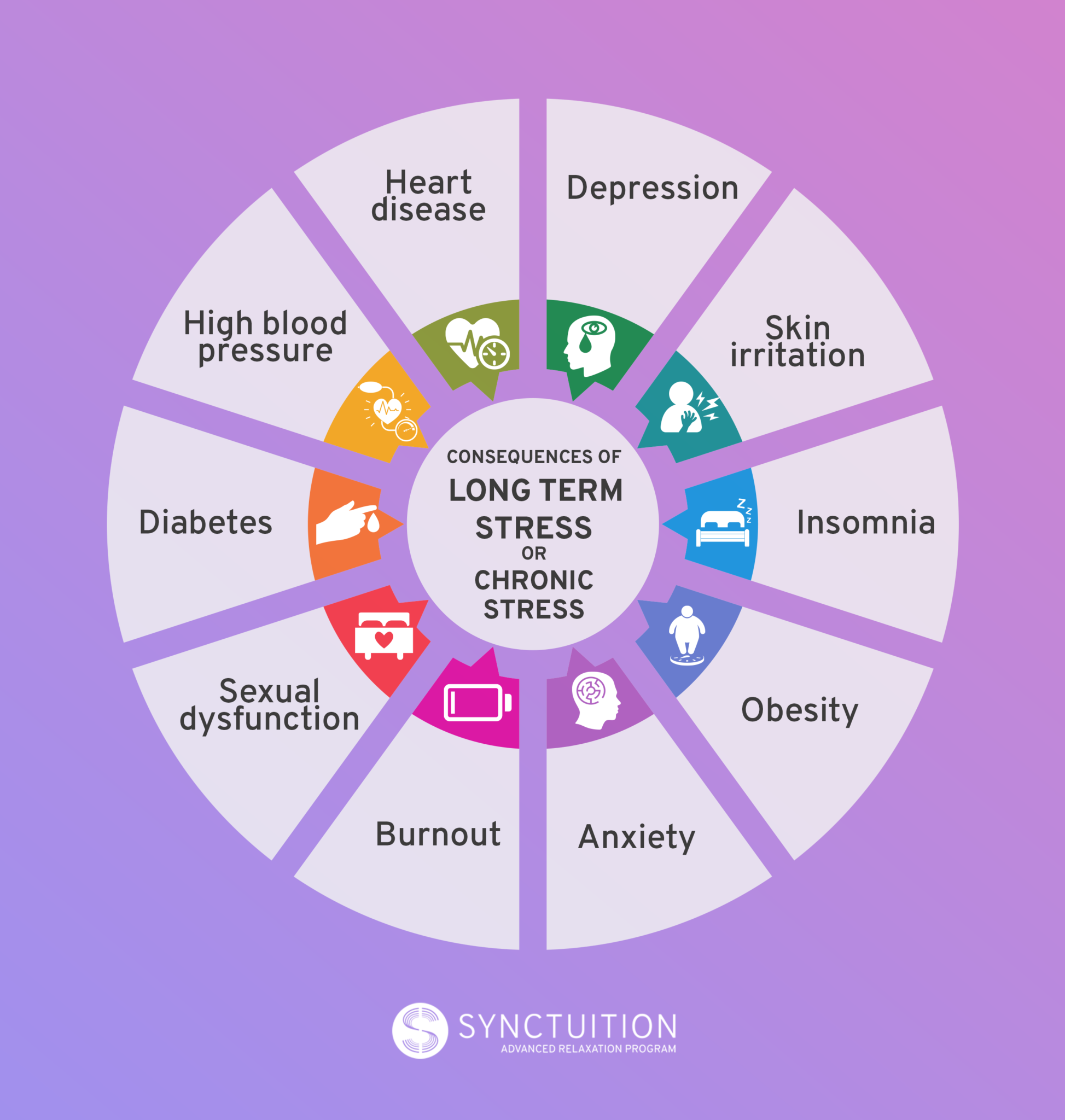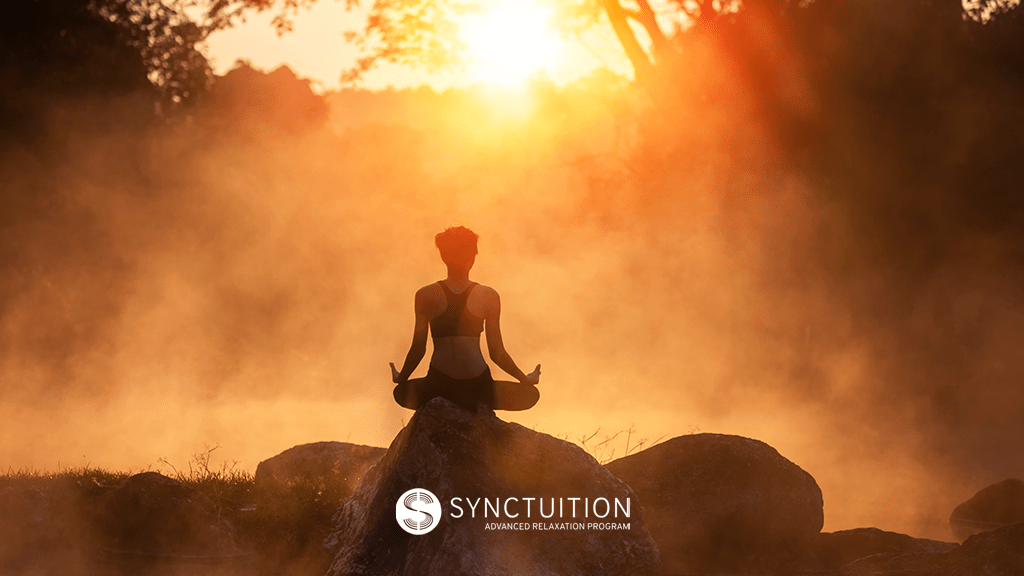Why Making Time For Evening Relaxation Is Important And How To Do it
Another day of busy work is finally over. And yet, you can’t seem to unwind. Your mind keeps going back to the problems left at the office, the bills to pay, or the uncertainty of the future. Soon, all those thoughts snowball into an unstoppable avalanche of stress and racing thoughts that won’t go away as the night approaches. To enjoy a proper rest and recharge your batteries for the next day, it’s important to prepare your mind first. Achieve this through a session of evening relaxation.
“Obviously, there is a huge amount of pressure and stress and everything involved, so you need to have a place where you know you can switch off and recharge your batteries. I guess it’s private, in a way. But I just can say that it’s a very calm and very beautiful environment where I like to spend time.” — Novak Djokovic, a professional tennis player, on his visit to a Buddhist temple to meditate and relieve stress between matches.
What happens during the day?
You wake up, spend around nine hours at work, return home, and get ready for a new day of more or less the same. By evening time, your batteries are running low and all you want to do is relax and sleep twelve hours straight. But you are tense, full of worries and racing thoughts. This is the result of all the stress you accumulate throughout the day and the reason why so many people find it so hard to relax and properly recover for the next morning.
Feeling like you can’t wind down or find the energy to go on is normal. We live in a world that never stops and demands too much of us. Stress levels are rising every year with no signs of stopping. According to a report, many countries across the world have highly stressed societies. America, for example, makes it to the ranking with 55% of its population experiencing high levels of stress on a daily basis. Stress is typically common in the workplace, with 83% of American workers suffering from constant stress.
In Japan, death from overwork is common and it is termed Karoshi. In 2017, 190 Karoshi deaths were reported. Stress is not only present in the workplace; it is also widely experienced by school and university students. A 2018 UK survey found that 83% of people aged 18 to 24 reported being so stressed they felt unable to cope with life.

Stress in numbers
Very often, as the day is nearing an end and you’re trying to wind down, your mind won’t be quiet. No matter how hard you try, your brain keeps playing a compilation of your most regretful or negative experiences: a poor performance review at work, a heated discussion with your partner, an overpriced electricity bill, and so on.
Negative thoughts during bedtime are very common. According to clinical psychologist Deborah Vertessy, this happens because of human beings’ primitive need to protect themselves. “In hunter-gatherer times, and indeed now, if we weren’t paying attention to the cliff or tiger ahead of us because we were distracted by a beautiful sunset, it could spell our demise,” Vertessy says.
If you find yourself worrying about mistakes made at work, it’s likely you are assessing your performance and looking after your livelihood. No matter how many positive experiences you have, your brain is good at focusing on negative events. Although this kind of thinking happens anytime, it’s especially frequent at night as this is one of the few quiet periods you have to reflect on your day without interruptions.
The effects of daily stress on your body and mind
Stress occurs when you perceive danger from any source — a big deadline, an angry boss, relationship issues, etc. Immediately, your brain releases hormones that travel through the blood to the adrenal glands. These stress carriers sit on top of your kidneys releasing two stress hormones (adrenaline and cortisol) that act on your entire body.
Once the adrenal glands release adrenaline, you are ready to “fight or flight”. In such moments, your heart pounds soundly to supply muscles with blood. Your bronchial tubes (lung) also dilate in order to bring more oxygen, and your brain becomes more alert, and ready to process information. At the same time, the adrenal glands emit cortisol into the bloodstream to fuel your flight. This is the perfect, short-term system response.
Needless to say, stress is only good when experienced in short amounts and temporarily. Real trouble starts when you develop chronic stress. Under constant stress, cortisol levels remain high in your body. Then, you go into survival mode and your body begins to store as much energy as possible. This energy storage overdrive leads to dangerous consequences such as heart disease, skin irritation, diabetes, burnout, anxiety, and many others.

Calming your mind with evening relaxation
While there are no specific guidelines on how much relaxation you should incorporate into your routine, making time to unwind and detach your mind from the hustle of the world is crucial for maintaining good health. According to a recent study published in the Journal of Occupational Health Psychology, relaxing after work in the evening is not only necessary for stress relief but also for the day-to-day recovery process. This is because deep relaxation allows you to get the rest and healing sleep you need to function at your best potential.
The study also found that the most common activities to achieve evening relaxation are yoga, breathing exercises, listening to music, and meditating. When the latter is practiced during the evening, you experience the relaxation needed to get restful and deep sleep. As you would know, a good night’s sleep keeps you healthy and productive during the daytime.
Another study published in JAMA Internal Medicine included adults who had trouble sleeping. Half of them were taught meditation techniques that invited them to focus on the present moment. The other half completed a general guide on how to improve sleeping habits. The results proved that the group of meditators experienced less insomnia, depression, and fatigue by the end of six sessions.
The relaxation response
“Meditation is just one of a smorgasbord of techniques that evoke the relaxation response,” says Dr. Herbert Benson, director emeritus of the Institute for Mind-Body Medicine.The relaxation response is a deep physiological shift in the body that is the opposite of the stress response. It can relieve many stress-related symptoms such as depression, pain, and high blood pressure.
According to Dr. Benson, the relaxation response engages the parasympathetic nervous system. This system conserves energy as it slows the heart rate, increases intestinal and gland activity, and relaxes muscles in the gastrointestinal tract. Learning to master the relaxation response is ideal to heal ourselves and become better equipped to deal with life’s unexpected stressors.
Like many other experts in the field, Dr. Benson recommends relaxing for at least 20 minutes a day. “The idea is to create a reflex to more easily bring forth a sense of relaxation.” With time, achieving a relaxation response will become much easier.
Top 5 relaxation techniques
There are a number of things you can do to elicit the relaxation response. You could pay for an acupuncture session or go on a vacation. But, to help you save time and money, here are 5 practical and inexpensive techniques to achieve evening relaxation.
1. Relaxing Music
Music has played a vital role in the history of humankind. Even if you are not a music aficionado, you still hum, sing, dance, and clap from time to time. After all, the human brain and nervous system are hard-wired to respond to rhythm, repetition, tones, and tunes. In fact, music can alter our emotions as demonstrated by several trials on music for stress relief during difficult circumstances.
For example, a study of 80 patients undergoing urologic surgery under spinal anesthesia found that relaxing music can decrease the need for supplementary intravenous sedation. Patients who listened to the music needed less calming medication than those who listened to white noise or simple chatter.
Finding the perfect relaxing music can be difficult. Fortunately, Synctuition’s team of experts analyzed the latest and most relevant research on stress and audio therapy to isolate the sounds to relax the mind. Our audio journeys combine relaxing music with beautiful natural sounds to help you enter a deep meditative state.
2. Body Scan
This type of meditation requires focusing your attention on various parts of your body. Start with your feet and slowly work your way up. As you do so, concentrate on how that part of your body feels without labeling the sensations as either good or bad. A body scan is a perfect practice to boost your awareness of the mind-body connection.
3. Guided Imagery
When you practice guided imagery or visualization, you conjure up a scene in which you feel calm — free of all fears and anxieties. It can be anything: a soothing place, experience, or scene that helps you relax and become more focused.

4. Yoga
Yoga is an ancient art, which combines deep breathing with a series of postures and movements. The physical aspect of this practice promotes an enhanced mental focus capable of reducing racing thoughts, anxiety, and stress. It can also improve your flexibility and balance.
There are several types of yoga or similar practices (tai chi or qigong) you can try depending on your needs. If you haven’t been active in a while, or are experiencing health issues, pain, or any disabling condition, make sure to consult your doctor before engaging in these exercises.
5. Repetitive prayer
For this technique, you silently repeat a short prayer, mantra, or phrase that is meaningful to you. While doing so, try to focus on your breathing. This method is especially appealing and effective if spirituality is an important aspect of your life.
How does Synctuition make evening relaxation effective?
Synctuition is the culmination of a decade of hard work by a select group of neurologists, medical experts, psychologists, meditators, and sound engineers. Our team spent years recording the perfect combination of natural and beautiful sounds to fight the effects of stress and toxic thoughts.
With Synctuition, you will get a pleasing mental shower at the end of each day to achieve advanced evening relaxation. Its sophisticated program includes 3D sounds, gamma range binaural beats, and personalized voice frequency. All you need is a set of headphones and 25 minutes of your time.

Immersive 3D sound journeys
Synctuition features over a hundred unique audio journeys designed to help you achieve your evening relaxation. Each journey holds a meaning that is derived from life itself such as love, memory, faith, or intuition. Some journeys will relax you, others will stimulate your mind, and some might even challenge you emotionally. They are grouped into levels and each one is designed according to the steps you need to take in your journey towards a more fulfilling life.
The more you listen to the journeys, the more in touch with yourself you’ll become. With time, you will start noticing how easy it is for you to relax whenever you need it most. When listening during the evening, you will fall asleep easily resetting your body and mind to function at their 100% capacity the following morning.
When you practice your evening relaxation with Syncuition, you are filtering bad content out of your long-term memory while also enjoying the following benefits:
- Less stress and anxiety
- Control of addictions
- A razor-sharp memory
- Reduced jet lag
- Extra motivation
- Greater confidence
- Higher levels of happiness
- Acute intuition
- Makes the Law of Attraction work
Try it for free!
Enjoy all the wonderful benefits of evening relaxation. Try 75 minutes of our revolutionary 3D audio journeys totally free of charge. No credit card, no obligation, just 100% relaxing beauty.







